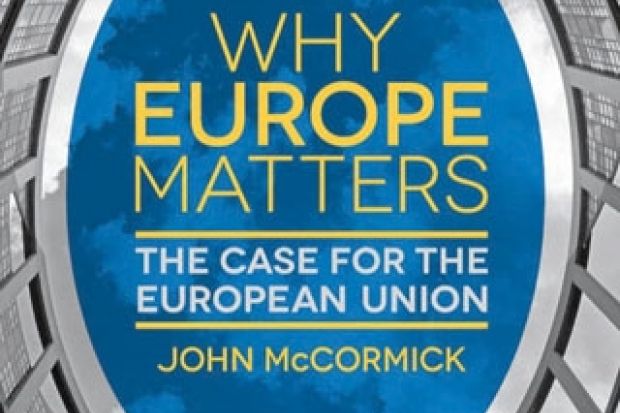T he current high level of Euroscepticism may have three deep-seated causes, John McCormick suggests. First, Europe’s general public, mainly not very interested in politics in the first place, is seriously ignorant about the complex matter of what the European Union’s purpose is, and about its necessarily complicated institutions and procedures. Second, even among those concerned with these matters, there are genuine and confusing disagreements about what the EU is trying to do, and even what it wants to be: do some of its leaders seriously wish to make it an “ever-closer union” of a centralised federal kind, or are they really content for it to remain a relatively loose grouping, subject to shifting coalitions of its member states and the threat of national vetoes? And third, the EU’s supporters have been remarkably inactive and silent, during all the decades of its existence, making few attempts to persuade their fellow-citizens to understand its benefits or, for instance, to vote in elections for the European Parliament.
Following this analysis, an author aiming to convince his readers of the value of the EU and its works has to tackle the triple task of remedying ignorance, dispelling confusion and inspiring appreciation. In this relatively short book, McCormick makes a good job of the first and second of these, but his handling of the third is a good deal less effective than it might be.
First, as a remedy for ignorance, Why Europe Matters is excellent. McCormick offers a clear and balanced account of the EU’s long and tortuous development. He shows how and why its functions have logically “spilled over” from limited beginnings to include a share in a broader range of governmental responsibilities (shared, that is, with the authorities of the member states). He is honest in explaining why “Europeanisation” in certain key areas – military defence, for instance, or the management of the financial services sector – has run into serious obstacles.
Second, when he sets about dispelling confusion, McCormick’s touch is again sure and effective. His lucid classification of the EU’s institutions into the “intergovernmental” (the summit-level European Council and the ministerial Council of the European Union) and the “supranational” (the Commission, the European Parliament and the Court of Justice) confirms that this is far from a federal United States of Europe. The author rightly categorises it as “a confederal union of states, albeit with some federal qualities”: since there are good reasons for this hybrid creation to continue well into the future, McCormick sensibly urges the rulers and citizens of Europe to recognise it for what it is, and to learn to appreciate the benefits it can offer.
It is, however, when he comes to argue the case for these benefits that McCormick offers less than the debate requires. He does indeed set out systematically and comprehensively what the EU aspires to achieve – as a peacemaker, a marketplace, a community, a political model and a global player – but there is too little space for him to say concretely enough what the achievements have actually been, and the reader has to take too many claims on trust.
The book is well written, give or take the egregious misuse of the term “diplomatic corps” to refer to the EU’s embryonic diplomatic service: a “diplomatic corps” is the ensemble of all the foreign diplomats accredited to a given national government. For Europhiles, McCormick provides a useful checklist of points worth making, but anyone preparing for a debate with a serious Eurosceptic will have to supplement the book’s deficiencies (including a paucity of economic facts and statistics) from other sources.
